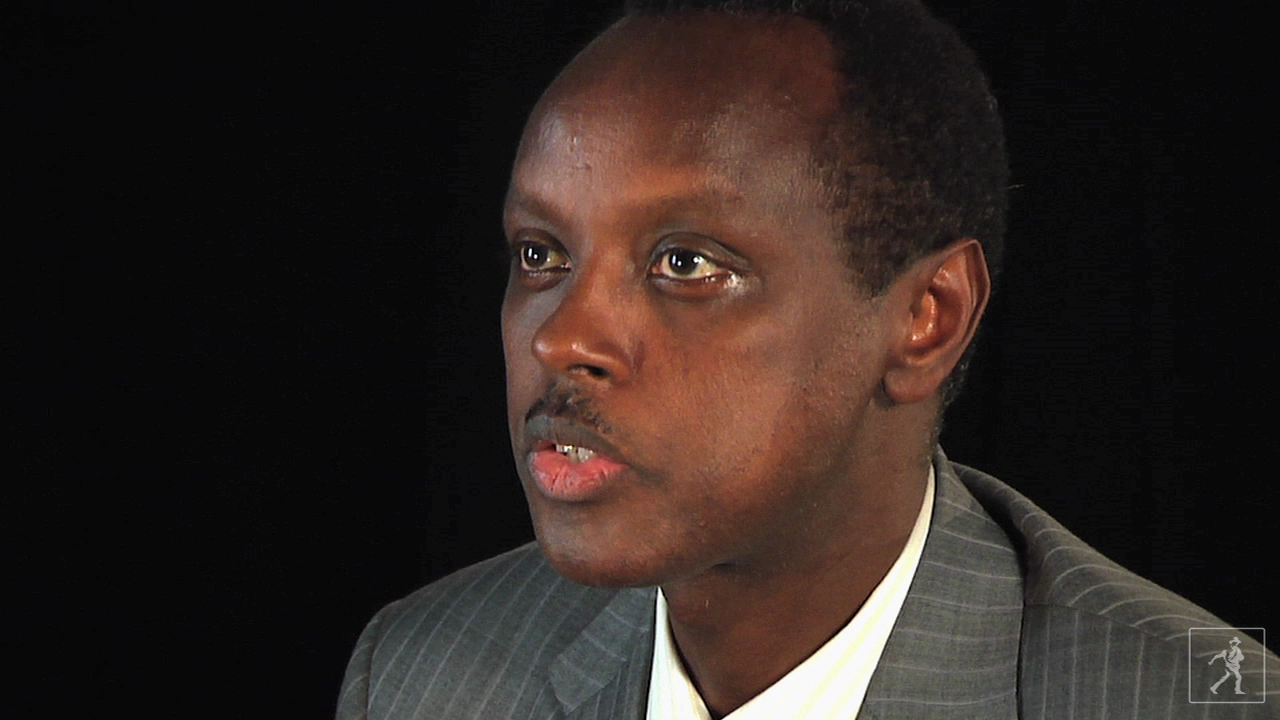(The Verge) – On Tuesday Febrary 19, Dr. Joseph Sebarenzi came to Pollak Theater at Monmouth University to speak about his experience and survival in the Rwandan genocide. In honor of Black History Month, Sebarenzi spoke to the audience about forgiveness and kindness in the wake of all that has happened throughout history.
Sebarenzi began his speech by stating that Black History Month is not a time to remember the things that have gone down in history, but to celebrate what African Americans have been able to achieve.
From there, he gave a little bit of his background. Sebarenzi was born and raised in Rwanda as a Tutsi. At the time of the Rwandan genocide in 1994, he left for the neighboring country of Burundi after feeling a potential threat. He had asked his younger brother to come with him, but he refused, and stayed in Rwanda to support their parents and the rest of their family. Consequently, his brother was later killed alongside his parents, and much of the rest of his family.

Since then, Sebarenzi has used these experiences to speak on them in a remarkably positive light. “I have not been encouraging Rwandans to remember evil of that tragedy, but empowering survivors,” he said.
Sebarenzi’s mission is to eliminate the victim mentality that survivors of genocide and other horrible tragedies have. Remembrance leads to a victor mentality. He said, “The way we remember the past can do good, or do harm.”
He listed people prominent in the history of African Americans that should be celebrated: the Abraham Lincoln, Rosa Parks, Martin Luther King, and more modern figures like Oprah and President Obama. All of these people have done things that they felt are right, even though many people don’t and have not agreed with their standpoints. Sebarenzi stressed that it was this kindness, non-violent actions, and humbleness that have made these people heroes throughout time.
Sebarenzi explained, “Kindness is speaking of gentleness. We can strongly disagree and do so with respect. Kindness is responding to insults with kind words.”
During the Rwandan genocide, one of Sebarenzi’s neighbors made trips in a rowboat to bring Tutsis to the Democratic Republic of Congo, and away from the dangers in Rwanda. With this simple act of selflessness and kindness, he was able to save hundreds of lives.
After the genocide, Sebarenzi shared that he was extremely bitter and angry, which could have led him towards revenge. He however had compassion, and considered the possible effects that seeking revenge might have on Rwanda. “I would turn perpetrators to victims, who would seek revenge, putting future generations at risk,” Sebarenzi said. He also made a point that returning hate for hate only multiplies the very nuisance you’re trying to silence.
“Try to do your best to live in peace with everyone. When you make a mistake, be humble and ask for forgiveness,” Sebarenzi said.
With the heart wrenching stories of the Rwandan genocide, and the important celebrations of Black History Month, his overarching theme was simply kindness. “When people do wrong, no matter what the magnitude, you need to remain yourself; you need to remain kind. Keep the light of the day by being kind to one another.”





